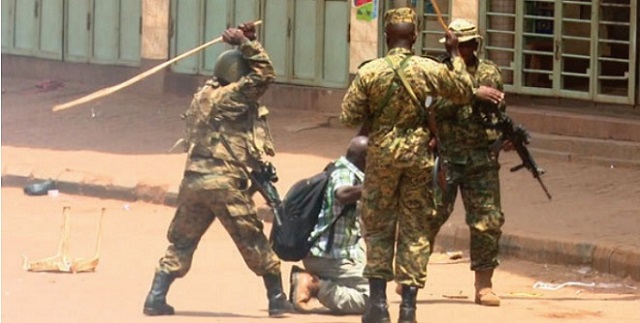
How to stop negative Africa stereotypes that feed western hunger for one-dimensional narratives
COMMENT | SHAYERA DARK | Project Syndicate | Anywhere in the world, freelance journalism is an extreme career choice. The job requires withstanding pitch rejections, ignored queries, stolen story ideas, and delayed payments. It means reconciling oneself with the economic precariousness that comes with having little or no leverage in pay negotiations. But for African freelance journalists, covering the continent presents its own set of unique challenges.
In Nigeria, for example, most media companies need diligent editors, seldom publish incisive features and analysis, and struggle to compensate their staff due to lack of funding. Kenyan media entrepreneur and former CNN anchor Zain Verjee recently bemoaned the reluctance of African billionaires and governments to fund and implement policies that support African media startups, even though they bridle at often jaundiced Western media coverage. And, where positive coverage can be bought and sold, and journalism is viewed as glorified public relations, African freelancers can only dream of proper remuneration.
Consider a recent 800-word article I wrote for one of the country’s largest newspapers; it ran barely edited and earned me a paltry 10,000 naira (about $30). And that was after I haggled with the editor to bump it up from 5,000 naira. A story of similar length would earn me $200 or more from a publication in the West. Perhaps it is no surprise, then, that many Nigerian freelancers – including me – gravitate toward Western media.
But that leads to other problems, such as an over-emphasis on crises, strife, and other issues viewed as relevant to Western audiences. I’ve experienced this firsthand. I once pitched a story about a Nigerian Para-Olympian to a news website in the United States that frequently showcases African writers. The editor rejected it because it was too “optimistic.” On another occasion, a Western magazine tried to edit my initial draft to suggest that a refugee’s deceased parents were killed by armed militias when, in fact, her father’s death was undisclosed and her mother died from an illness.
As Karen Rothmyer pointed out eight years ago in the Columbia Journalism Review, foreign media outlets seem beholden to the idea that Africa is in perpetual chaos. Rothmyer, who lived in Kenya for several years, traced the endless stream of bad news to nongovernmental organisations’ use of data to justify their existence, which in turn shaped Western reporters’ “frames of reference” before they even arrived on the continent. Eight years later, those reference points have not really changed.
This penchant to accentuate the negative does more than reduce Africa to stereotypes; it also feeds the one-dimensional narrative of Africa as a war-torn, disease-ridden, poverty-stricken hellscape where all hope dies. This inclination to fit people and events into simple plot lines leads to what Nigerian author Chimamanda Ngozi Adichie calls the “danger of a single story.” A limited viewpoint, repeatedly promulgated, comes to frame all coverage and emerges as the only truth.
And yet, editorial bias is not the only challenge for African freelance journalists. Another common problem is relegation to co-author or “fixer” status when assisting Western media. Nigerian photojournalist Fati Abubakar, who is often a source for foreign reporters writing about Northern Nigeria, describes the current situation as “a brain-drain sort of relationship,” and says her consulting services should be compensated but rarely are. Changing this would obviously benefit local journalists and help foreign media avoid embarrassing and dangerous cultural faux pas, like revealing the identities of assault victims or photographing dead bodies.
Then there is the issue of the pay discrepancy between African and Western journalists. Many publications expect local hires to charge less than their foreign counterparts. When Abubakar was just starting out, she accepted whatever was offered. Now, as an established and sought-after photographer, she is able to turn down work that pays too little. But most freelance journalists in Africa are not so lucky, which leaves many vulnerable to the whims of commissioning editors.
International coverage of Africa can sometimes feel patronizing, either from a lack of local knowledge or because of sheer laziness. A recent photo essay in The New Yorker about some of Nigeria’s biggest Afrobeats musicians fell flat with Nigerians, with some criticising its shallowness and the absence of quotes from the included artists. Hiring a well-versed Nigerian music critic (yes, they exist) would almost certainly have resulted in a deeper and more compelling feature.
Aside from commissioning African journalists to provide insight – which is the minimum we should expect – Western publications could improve their Africa coverage by surveying the views of contributing freelancers. It would also be beneficial for foreign media outlets to staff dedicated and robust Africa “desks” with local journalists and hire African editors who have the nuance and experience to identify topics and frame coverage in ways that best serve readers.
But, above all, African governments and philanthropic organisations need to assist African media startups, and media companies must pay journalists better, properly train their editorial staff, and resist the temptation to accept money for coverage. Only then will African stories be given the attention they deserve, and be told by journalists who are unencumbered by the skewed preferences of Western audiences and media.
*****
Shayera Dark is a freelance writer based in Lagos.
Copyright: Project Syndicate, 2019.
 The Independent Uganda: You get the Truth we Pay the Price
The Independent Uganda: You get the Truth we Pay the Price


